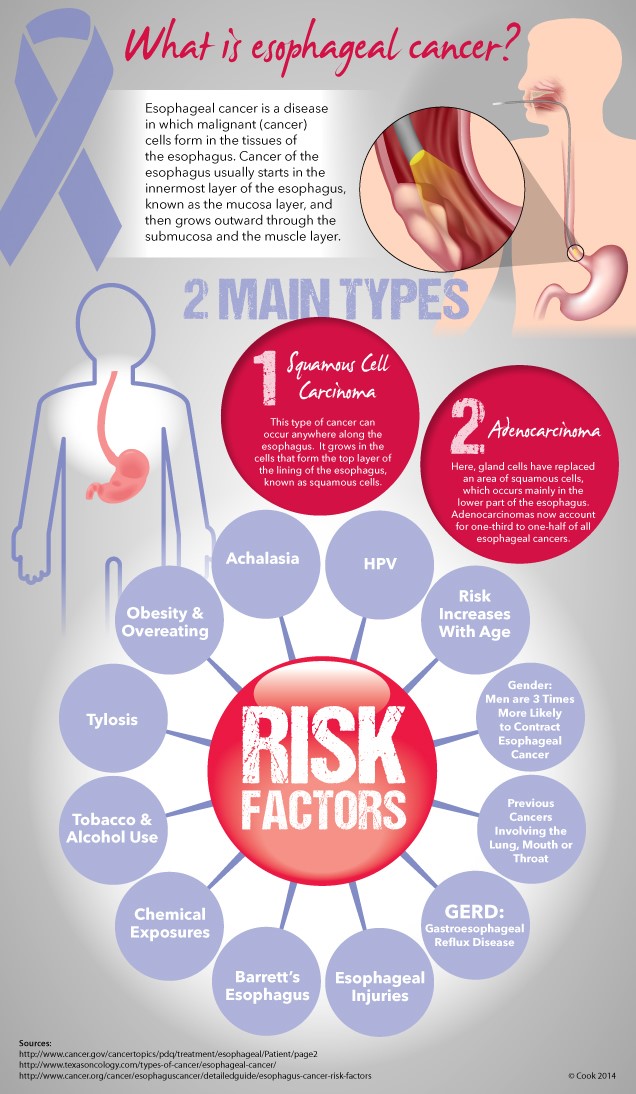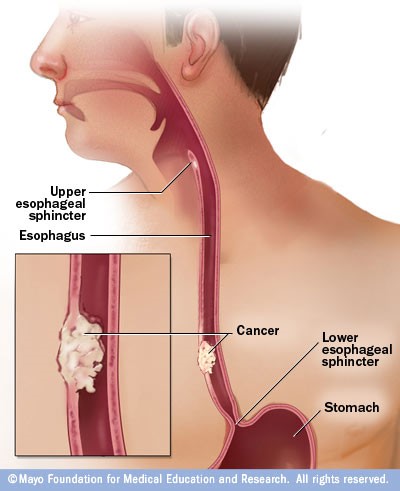Esophageal Cancer
The esophagus is a hollow muscular tube that connects the mouth to the stomach. Each time you swallow food or liquid, the esophagus transports it to the digestive system.
Esophageal cancer can develop when cells in the soft tissues lining this tube begin to grow and divide abnormally, forming a tumor. Tumors typically start in the innermost layer of the esophagus and then spread outward. The spread of cancer from the esophagus to the lymph nodes and other organs is called metastasis.
Esophageal cancer is considered rare compared with cancers of the breast, lung, or prostate. Nevertheless, the number of diagnoses for one of the two main types of esophageal cancer, adenocarcinoma, has risen dramatically in the past few decades.
Types of Esophageal Cancer
Most esophageal tumors can be classified as one of two types — adenocarcinoma or squamous cell carcinoma. A third type of esophageal cancer, called small cell carcinoma, is very rare. Because different types of cancer begin in different kinds of cells, they develop in different ways and call for different approaches to treatment.
- Adenocarcinoma
- Squamous cell carcinoma
- Small cell carcinoma
Gastroesophageal Reflux Disease and Esophageal Cancer
Normally, a sphincter muscle at the end of the esophagus opens to allow food to enter the stomach and closes to prevent harmful digestive acids from bubbling back up into the esophagus. When this sphincter muscle does not function normally, however, it can lead to a condition known as GERD. Studies have shown that having severe GERD over the course of many years increases the chance of developing gastroesophageal adenocarcinoma.




